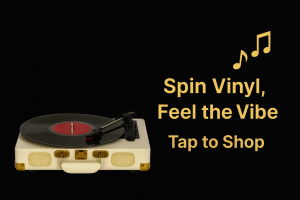“Push,” with its raw, confessional lyrics and instantly recognizable guitar riff, became an unavoidable anthem of the late ’90s.
While the song’s catchy chorus and Rob Thomas’s passionate vocals made it a radio staple, its meaning sparked considerable debate and, for many, misunderstanding.
It’s a song that delves into the messy, often painful complexities of relationships, exploring themes of emotional manipulation and vulnerability.
This created a very controversial song.
- Writer: Rob Thomas, Matt Serletic, Matt Beck, Kyle Cook
- Performed by: Matchbox Twenty
- Album: Yourself or Someone Like You (1996)
- Producer: Matt Serletic
📝 Background & Meaning:
“Push” was written by Rob Thomas, the lead vocalist and primary songwriter of Matchbox Twenty, alongside Matt Serletic, Matt Beck, and Kyle Cook.
Released in 1997 as the second single from their debut album, Yourself or Someone Like You, the song became a defining track for the band and a staple of ’90s alternative rock.
The song sparked controversy and misinterpretations upon release, with many assuming the lyrics condoned emotional or physical abuse in relationships due to lines like “I wanna push you around.”
However, Rob Thomas clarified that the song was not about male aggression towards women but rather about his own vulnerability and emotional manipulation he experienced in a past relationship.
Thomas explained that the song reflects the feeling of being emotionally pushed and manipulated in a toxic relationship and the complex emotions that arise when trust is broken.
It’s about feeling powerless, angry, and hurt, yet still drawn to the relationship.
🎤 Key Themes:
- Emotional Manipulation: The song explores the complex power dynamics in unhealthy relationships.
- Vulnerability and Frustration: Thomas conveys the raw vulnerability of feeling used or emotionally trapped.
- Self-Reflection: There’s an introspective quality, with the narrator questioning their own role in the relationship dynamic.
- Miscommunication and Misinterpretation: The song itself became an example of how lyrics can be misinterpreted without understanding context.
🎧 Notable Lyrics:
“I wanna push you around / Well, I will, well, I will.”
- Often misunderstood, this line represents emotional vulnerability and being pushed to emotional extremes, not physical aggression.
“I wanna take you for granted / Yeah, I wanna take you for granted.”
- Suggests an unhealthy dependency and lack of appreciation in relationships.
“You don’t know me, you don’t even care.”
- Captures the feeling of isolation and disconnect within a toxic relationship.
🎸 Musical Highlights:
- Raw Guitar Riff: The song begins with simple yet powerful acoustic guitar strumming, setting an introspective tone.
- Emotional Vocals: Rob Thomas delivers a raw, passionate performance, balancing anger, sadness, and regret.
- Build-Up in Intensity: The song escalates from a mellow verse into an emotionally charged chorus.
- Layered Instrumentation: Subtle yet impactful arrangements create a dynamic, immersive sound.
- Catchy Chorus: The repetition of “I wanna push you around” creates a memorable and haunting hook.
🌍 Cultural Impact:
- “Push” became one of Matchbox Twenty’s biggest hits, reaching #1 on the Billboard Modern Rock Tracks chart and staying on the Hot 100 Airplay chart for over a year.
- The song played a significant role in establishing Yourself or Someone Like You as a multi-platinum album, eventually selling over 15 million copies worldwide.
- Despite initial controversy, the song became a defining anthem of the ’90s alternative rock era.
- Its themes of emotional vulnerability and toxic relationships resonated deeply with fans, creating a powerful emotional connection.
🎤 “Push” Fun Fact:
- Rob Thomas has repeatedly addressed the misinterpretations of the song, clarifying that it’s about his personal experience of being emotionally manipulated in a relationship.
- The song’s success took Matchbox Twenty by surprise, as they never expected it to become such a massive hit.
- Rob Thomas wrote the song when he was just 21 years old, capturing raw and unfiltered emotions.
🔑 What It Represents:
“Push” isn’t just a song—it’s an anthem of vulnerability, raw emotional honesty, and the messy complexities of human relationships.
It represents:
- The inner conflict of staying in an emotionally toxic relationship.
- The power of raw songwriting to confront personal pain.
- How lyrics can be deeply misinterpreted without context.
- Matchbox Twenty’s breakthrough into mainstream success.
With its emotive vocals, powerful chorus, and raw lyrics, “Push” remains a timeless classic that captures the turmoil, fragility, and emotional complexity of love and heartbreak. 🎶💔🎤
The Timeless Appeal 🕰️✨
Why does “Push” continue to resonate, even with listeners who weren’t around for the initial controversy?
It’s because the song taps into something fundamentally human: the experience of being in a relationship where the power dynamics are skewed, where you feel manipulated or misunderstood.
Many classic rock artists explore themes of love and heartbreak.
Matchbox Twenty does so with a raw honesty and vulnerability, and lyrics that feel unsettlingly relatable.
The Final Note 🔚🎶🔥
“Push” serves as more than a hit song.
It’s a reminder that some things are not always what they seem.
Its legacy is complex, marked both by its massive popularity and the ongoing conversation surrounding its meaning.
Its cultural impact shows the importance of dynamic communication.

